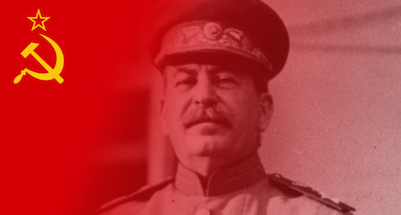his repressions and rehabilitating Stalin's victims, many of his own political colleagues were convinced that Krushchev's seeming eagerness was undermining the Soviet political system.
Krushchev was replaced and his anti-Stalin plans were quickly thrown out. Stalin was not exonerated by post-Krushchev regimes, but neither was he condemned.
Mikhail Gorbachev's ‘perestroika' approach to governing was meant to boost restructuring of the Soviet state. Broad public discourse engaged many different constituencies in the late 1980s and eventually the rule of communism along with the Soviet Union collapsed. It is said that Boris Yeltsin's deeply rooted hatred of communism was reflected in the public taking for granted the condemnation of Stalin and other Soviet leaders of his ilk.
Theoretically post-Soviet Russia has adopted a Western model of governance accompanied by traditional democratic institutions. But observers have noted that this perception is faulty. Vladimir Putin has effectively eliminated public participation in politics and policy making by enforcing uncontested rule. Observers indicated that Stalin is once again at the fore in the current Russia that embodies unconstrained state power and a domestic security agency as the backbone of the state.
Pro-Stalin propaganda is not necessary. Stalin is seen as the symbol of the state at the pinnacle of its might, as the leader who defeated Nazi Germany. Putin's government officials are vague and evasive about Stalin's crimes. Public discussions about Stalin's culpability have been marginalized.
But the topic has not been suppressed. Books, fiction and non-fiction about the Gulag are readily available. Academics continue to pursue study about Stalin's crimes, the Memorial society continues to commemorate and conduct research, and state-run national TV channels have devoted time to works by Aleksandr Solzhenitsyn and other chroniclers of Stalin's crimes.
In 2007 Putin, after visiting the site of mass executions in 1937-8 said: “We need to do everything so this tragedy would never be forgotten.” But just two months later, Putin participated in the celebration of the 90th anniversary of the FSB, whose officers and veterans are known to refer themselves as ‘chekisty', the ruthless secret police entrusted by the early Bolsheviks to liquidate class enemies, the same perpetrators of mass terror, continued by the KGB in whose ranks Putin himself was an officer. At the celebrations there was no mention of course of the outright crimes committed by Soviet secret police but rather, as Putin so proudly remembered, “the historic pages in the history of our special services”.
The seeming insincerity of the governmental claims of authentic de-Stalinization initiatives is matched by public dichotomy in attitudes towards Stalin. The director of Russia's largest independent opinion research firm Levada, Lev Gudkov, states that in general the populace supports a de-Stalinization program. Specifically 70% support total access to previously closed archives, the rehabilitation the victims of mass repressions and assistance to the victims. Slightly more than half of the respondents agree with discarding place names based on Soviet public figures. This in itself would constitute a radical change in that Russia is replete with street names dedicated to some of the most murderous communist revolutionaries. It's typically explained that even though the names evoke horrendous images when one pauses to think, people are just so used to them.
Taking a possible criminal case of communist crimes to court does not, however, have public support. Lacking is an understanding of who or what is to be held accountable.
Research conducted by the Carnegie Endowment in 2012 did not replicate Levada's survey results and showed different attitudes about Stalin. It indicated that support for Stalin has actually increased since the collapse of the USSR. Vladimir Putin is seen as a possible main player in the rehabilitation of Stalin. Amongst younger respondents a growing level of indifference dominates. In fact in Azerbaijan 39% of the youth did not know who Stalin was. Fully 45% of Georgians highly admire Stalin. Carnegie's polls also indicate a “double think” phenomenon – people tend to name him both as a ‘cruel leader' and a ‘wise father'. (To be continued.)
Laas Leivat
- Opinion – Stalinization, de-Stalinization, what's it to be? – VI
- Opinion – Stalinization, de-Stalinization, what's it to be? – V
- Opinion – Stalinization, de-Stalinization, what's it to be? – IV
- Opinion – Stalinization, de-Stalinization, what's it to be? – III
- Stalinization, de-Stalinization, what's it to be? – II
- Stalinization, de-Stalinization, what's it to be? – I




